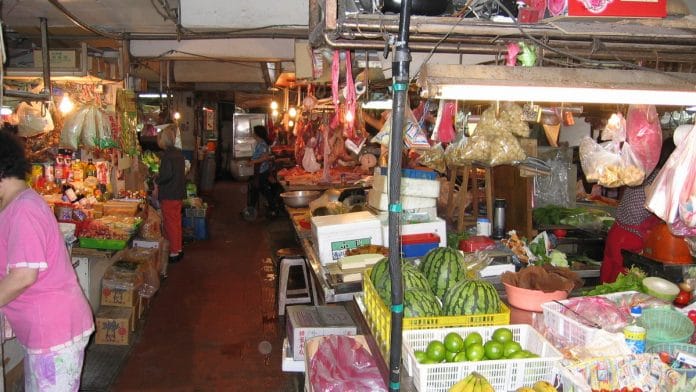Washington: U.S. health and agricultural authorities issued thinly veiled criticism of new demands from China for food-exporting companies to sign documents stating that they comply with safety standards to prevent transmission of Covid-19.
“Efforts by some countries to restrict global food exports related to Covid-19 transmission are not consistent with the known science of transmission,” U.S. Agriculture Secretary Sonny Perdue and FDA Commissioner Stephen Hahn said in a joint statement Wednesday.
That’s in line with advice from experts, who have continued to say that food poses little risk of spreading the coronavirus.
It’s the latest rebuff to China, which has issued warning shots to global exporters dealing with outbreaks among employees. The nation issued a ban on poultry shipments from a plant owned by Tyson Foods Inc. after the company reported infections at the site in Arkansas. Meanwhile, meat companies in the U.K., Germany and Brazil have voluntarily halted some shipments amid positive cases, according to China’s customs authorities.
An outbreak in Beijing was first traced to a chopping board used by a seller of imported salmon, but then the country’s National Health Commission said there was no evidence showing the fish is either the origin or intermediate host for the virus.
Also read:Covid lockdowns may be causing another virus wave — dengue fever
Still, salmon was removed from supermarkets in major Chinese cities.
Perdue and Hahn said in their statement there is “no evidence that people can contract Covid-19 from food or from food packaging.”
While meat companies in Brazil and Europe have signed China’s requested affidavit showing a compliance to safety standards, many American exporters have so far been reluctant to take that step for fear of liability. Tyson Foods on Tuesday became the first major U.S. company to confirm it signed the certificate.
Australia issued a statement dated Tuesday that cited the World Health Organization, saying that “transmission through food is highly unlikely and there is no evidence of this occurring with COVID-19 globally to date.”
A spokesperson for the European Commission also said there’s no evidence food is a likely transmission source. If trade regulations don’t remain science-based, there could be a “global spiral” toward needless import controls and Covid-19 certification for food products, with “grave” consequences for food security and global trade.
The commission said it remains confident that China will refrain from unjustified measures on imported food.
The Chinese request isn’t aimed at imposing trade restrictions, according to people familiar with the matter. The requests are informal, and is to ease Chinese consumer concerns over the safety of imported products such as meat, one of the people said.
But whether or not it was meant to target trade flows, the new demand could still end up being an impediment to shipments. That would further delay the $36.5 billion in farm purchases the Asian nation pledged under Beijing and Washington’s phase one trade deal.
Chinese buyers are asking soybean and meat shippers to comply with safety regulations “to ensure that food imported into China is not contaminated with the Covid-19 virus,” according to the declaration seen by Bloomberg. The request was directed at “a wide variety of meats, seafood and other foodstuffs,” the U.S. Meat Export Federation said in a message to members.- Bloomberg
Also read:Sweden’s Covid expert says ‘world went mad’ with lockdowns







Strange. Initial investigation pointed to Coronavirus was supposed to come from a bat/pangolin/ wet market/ wuhan / china!!! So is it lab manufactured or spread from animals dead/live?